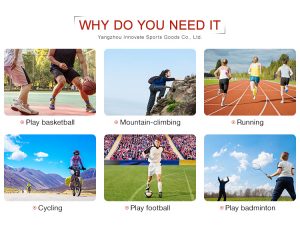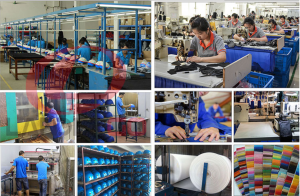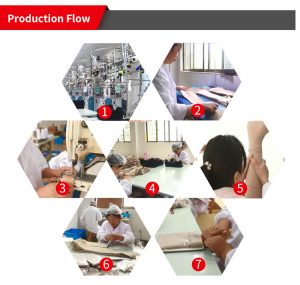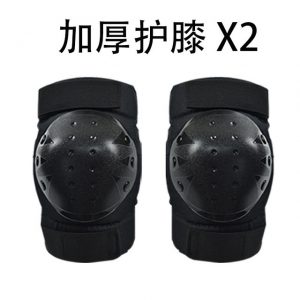
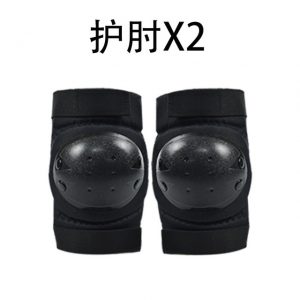
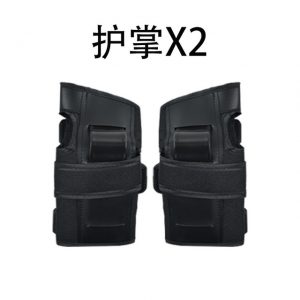
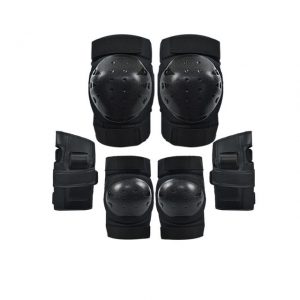
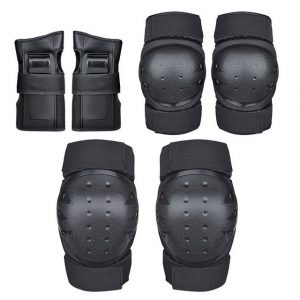
Product Description
| Protected part | Palms, elbows, knees |
| The main material | PP shell Sponge velvet Oxford cloth Elastic band Velcro EVA foam |
| For people | Universal |
| Applicable sports | Roller skating |
| Applicable gender | Universal |
| Applicable scene | Sports trends, cycling sports, extreme challenges, playground |
| Wheel material | PU |
| Color | Black |
| Specification | S size (below 35kg), M size (36-58kg), L size (59-80kg) |
| Order Lead time | 10~20 days |
| Custom | Accept custom logo and print, packaging |
| More Detail | Specifications Palm protector x2 Elbow protector x2 Knee protector x2 Brand neutral, no LOGO, support OEM, ODM processing customization Material High-quality PP curved shell, wear-resistant Oxford cloth, EVA cushioning Size S (10-25Kg), M (26-45Kg), L (46-65Kg) Weight 340g for S size, 430g for M size, 450g for L size Features Double wear protection, comfortable and breathable humanity adjustment Suitable for outdoor sports such as roller skating, roller skating, skateboarding, balance bike, sliding bike, etc. for children and adults |
What are the roller skating protective gear included, and how to wear it correctly? Listen to the voice
Roller skating shoes are divided into double-row roller skating and single-row roller skating. The two types of roller skating shoes have their own items. Roller skating is also a great means of transportation. If you choose the right type, both double-row and single-row Yes, the protection during roller skating is also very important. What is the six-piece roller skating protective gear? How to wear roller skating protective gear?
Six-piece roller skating protective gear
The six-piece roller skating protective gear is two knee pads, two elbow pads and two palm pads.
What are the roller skating protective gear included, and how to wear it correctly?
A complete set of protective gear for roller skating should include: helmet, elbow pads, knee pads and palm pads. High-quality protective gear emphasizes the requirements of covering, breathability, shock absorption and firmness.
Before knowing that children wear roller skating protective gear, understand that all kinds of protective gear have their own functions:
Knee pads: Whether you are a beginner or a highly experienced roller skating master, your knee is the place where you have the highest chance of landing and the greatest impact when you fall. If you don’t wear protective gear, it is easy to get injured.
Elbow support: This part is easy to bruise accidentally, especially when practicing some advanced movements-such as slipping backwards, and injuries due to unskilledness.
Palm Protector: Beginners often cause wrist sprains or palm abrasions due to improper support movements when slipping; roller skating masters may occasionally get abrasions. Wearing a palm protector can avoid these unnecessary injuries.
Helmets: Most people may think that they do not need to wear a helmet, but the head is one of the most important but fragile parts. The best protection should be used to rule out any possibility of injury. In addition, there are stunt knee pads. The design of this kind of knee pads meets the needs of those engaged in stunt wheel knives, such as U-shaped boards, slide bars, stairs, jumps, etc., to provide higher coverage and a larger area of protection and Better shock absorption effect.
What are the roller skating protective gear included, and how to wear it correctly?
How to wear roller skating protective gear
Generally speaking, the order in which children’s roller skating protective gear is worn is not much required, but the palm protector must be worn last. When strapping, it should not be tight, and of course it should not be too loose. It should be appropriate, that is, it will not feel tight and is not suitable for exercise.
How to practice roller skating safely
The safety of roller skating is the most important concern for most parents. For this reason, we also consulted Coach Cheng. Coach Cheng pointed out very carefully: roller skating is a risky sport. There are no problems in doing various actions during the sliding process. Safety factor, so the string of safety must be tightened to avoid accidents.
- In the process of learning roller skating, whether at home, outdoors or in a training center, the guardian must accompany to the end;
- Bring complete protective gear. Before taking a roller skating class or doing outdoor sports, check whether the roller skating shafts and screws are loose, and tighten them if they are loose;
- Choose a smooth square for the activity place, avoid puddles, sand, gravel, iron fences, sharp objects, etc.;
- It is not allowed to shuttle on the main road, so as not to cause irreparable damage, and the “Traffic Law” also expressly stipulates that it is illegal to play roller skating on the road.
What are the roller skating protective gear included, and how to wear it correctly?
The following also need parents’ attention
Choosing roller skating is equivalent to choosing wrestling, so mom and dad should prepare band-aids, hydrogen peroxide (to clean the wound), red potion and cotton wool.
Roller skating not only consumes energy, but also consumes water. Especially in summer, it is often dry and dry. How to replenish the water lost in the baby’s body is also an aspect that needs attention.
The first is the quality of drinking water: you should try not to drink all kinds of beverages, such as soft drinks; you should drink boiled water, or mung bean soup, or 1% light salt water, etc., to remove heat and heat, and replenish the body due to excessive sweating in time And the lost sodium.
The second is to avoid taking too cold water: because people’s body temperature is usually around 37℃, after exercise, it can rise to about 39℃. If you drink too cold water, it will strongly stimulate the gastrointestinal tract and cause gastrointestinal smooth muscle spasm. The blood vessels contract suddenly, causing gastrointestinal dysfunction, leading to indigestion.
The third is the amount of water to drink: you sweat a lot during exercise, and the amount of water you need to drink is naturally large, but you can’t drink enough at one time, and drink it in divided doses. The volume of drinking water should not exceed 200ml, and the interval between drinking water should be at least 15 minutes. In addition, the drinking rate should be slow and not too strong.
